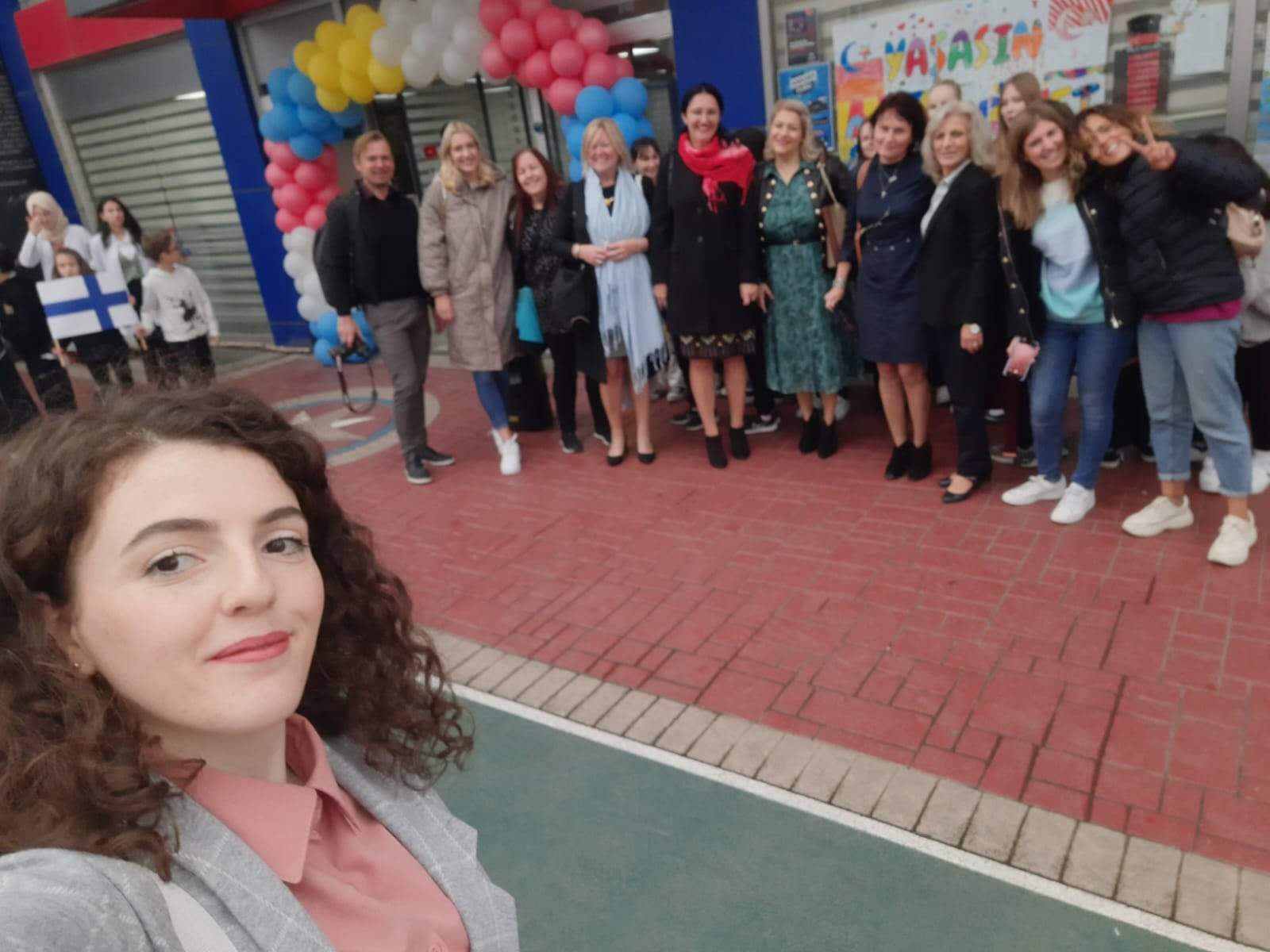The “Future of Water” learning and teaching activity was held in Cadiz from April 3rd to April 9th, 2022. This event brought together students and teachers to engage in a week-long series of activities focusing on water conservation, environmental awareness, and cultural exchange. Delegates from various regions participated in this event, which included educational workshops, cultural tours, and collaborative projects.
The programme was designed to blend educational activities with cultural experiences, offering participants a comprehensive learning experience. Here’s a summary of the main activities for each day:
Sunday, April 3rd: Arrival of delegations in Cadiz.
Monday, April 4th:
Introduction and icebreakers for students.
Welcome ceremony with speeches and student performances.
School tour and snack break.
Workshops on dancing Sevillanas and creating a water committee.
Project meetings for teachers and lunch at a local restaurant.
Free time in the afternoon.
Tuesday, April 5th:
Diverse school activities for students.
Workshops focusing on game-based learning and designing water-saving devices.
Guided tour of Cadiz, including the Cathedral and Municipal Historical Museum.
Bus tour and free time for participants.
Wednesday, April 6th:
Morning school activities for students.
Full-day excursion to Seville, exploring its historic center and significant landmarks such as the Real Alcázar, Seville Cathedral, and Torre del Oro.
Return to Cadiz and free time.
Thursday, April 7th:
Morning school activities and a walk through Alameda with a photography workshop.
Visit to the saltpans in Bahía de Cádiz park, followed by lunch.
Evening free time, staff dinner, and karaoke night.
Friday, April 8th:
Morning activities for students and delivery of certificates.
Farewell ceremony and gymkhana around Cadiz’s churches.
Beach sports activities at La Caleta.
Free time for participants.
Saturday, April 9th: Departure of delegations.
Educational Workshops:
Students participated in various workshops designed to enhance their understanding of water conservation. These included interactive sessions on creating water committees, designing smart water-saving devices, and using tools like Word Wall for problem-solving.
Cultural Immersion:
Participants had the opportunity to explore the rich cultural heritage of Cadiz and Seville. Highlights included visits to historic sites, learning traditional dances, and engaging in local customs.
Collaborative Projects:
The programme emphasized collaboration, with students working together to develop solutions to water-related problems and creating a common manifesto to promote water conservation.
Recreational Activities:
The schedule included various recreational activities such as sports on the beach, a photography workshop, and a karaoke night, providing a balanced mix of work and leisure.
Conclusion:
The “Future of Water” event in Cadiz was a successful initiative that combined education, culture, and fun. It provided a platform for students and teachers to learn about water conservation while experiencing the local culture and building international friendships. The event’s diverse activities ensured a holistic learning experience, leaving participants with valuable knowledge and memorable experiences.


